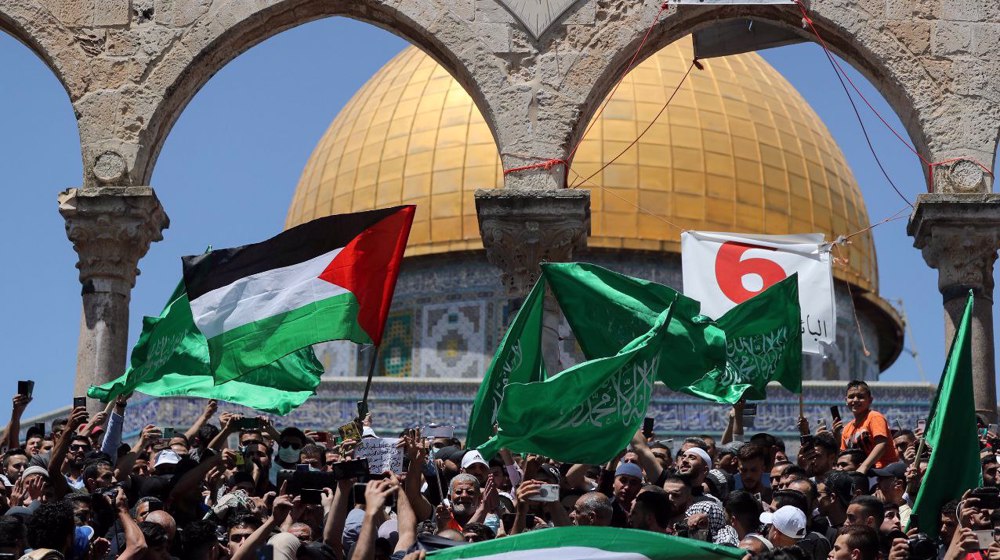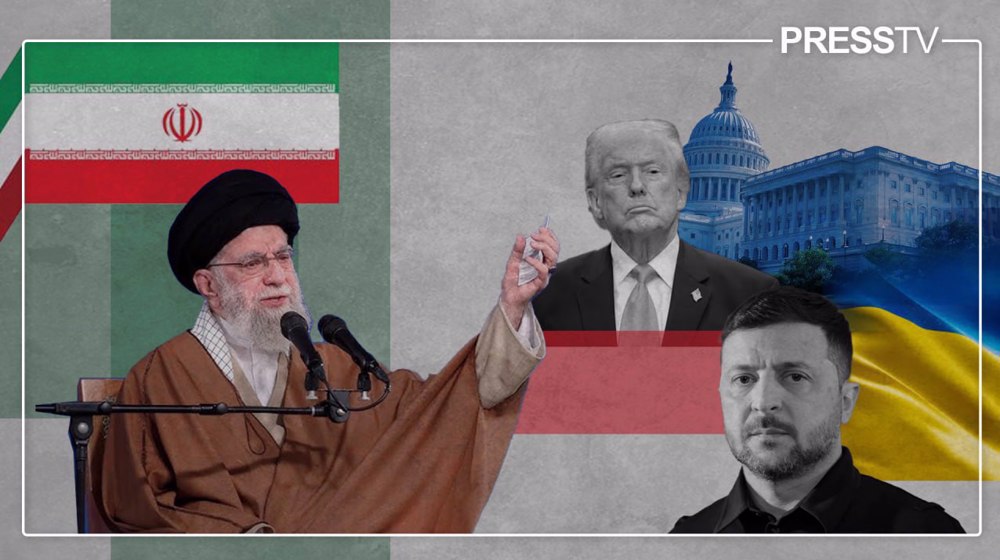Al-Quds Day espouses Muslim unity and Ummatic vision of Palestine
By Xavier Villar
Every year, on the last Friday of the holy month of Ramadan, International Al-Quds Day is observed with tremendous fervor across the world.
It was first observed in 1979, after the Islamic Revolution, at the initiative of Imam Khomeini, to extend support and solidarity with Palestinians in its struggle for the liberation of occupied territories from the Zionist regime.
The significance of Palestine and the Palestinian cause is crucial to understand the very foundation of the Islamic Republic.
Its importance as a political symbol in the discourse that it articulates has existed since its inception in 1979 and has been part of the political ideology of Imam Khomeini even before that.
In this regard, Imam Khomeini's sermon in the city of Qom in 1963 can be referred to, in which he publicly denounced the Pahlavi regime for its relations with the Zionist entity and for its betrayal of the Palestinian cause.
This proclamation, which led to Imam Khomeini's arrest, is still remembered in Iran as one of the foundational speeches of Islamism in the country. It should be remembered that one of the first diplomatic acts of the Islamic Republic was to break off relations with the illegitimate Zionist entity.
To understand the role that Palestine plays within the Ummah, it is necessary to stop focusing exclusively on the nation-state as the place from which to understand politics.
The national framework, due to its colonial origin, denies the global character of the Islamic project. The politics represented by the Islamic Republic seeks to express, through the observance of Al Quds Day, the unity of all Muslims and an Ummatic vision of Palestine.
At the same time, this day serves to remind us that the Zionist project, a project built on racial exclusion, has been the main element of instability and insecurity in West Asia since 1948.
Palestine not only becomes one of the points of unity of the Ummah, along with others like Kashmir but also support for Palestine serves to question the legitimacy of both the Zionist entity and the Western project upon which it is built.
Both projects seek to construct homogenization by excluding all those who do not belong to the said project. It is precisely this search for homogenization through exclusion that makes the Zionist entity an attempt to build a racial regime.
And it is the constant racialization of Palestinians that makes it a completely illegitimate project.
The Western theoretical horizon does not take into account the centrality of race in the Palestinian context. Precisely, the oppression suffered by Palestine under Zionism represents the true face of liberalism in particular and Western discourse in general.
This discourse is manifested in surveillance and control technologies that involve categorization, hierarchy, population transfers, and demolitions.
These mechanisms of surveillance and control were introduced by Zionist settlers long before 1948, by appropriating Palestinian land before, during, and after the Nakba, and by denying the rights of Palestinians.
We cannot fail to mention that the day of Al Quds serves to remind Muslim countries to adopt a political stance against the perpetual Zionist aggression and its illegitimacy.
Most of the population, according to several surveys, shows a high Ummatic sensitivity regarding Palestine in these countries, even in those that have signed farcical normalization agreements with the Zionist entity and thus betrayed the cause of Palestine and the Ummah.
According to Iranian expert Jafar Qannadbash, a member of the Strategic Council of International Relations, the Palestinian issue remains a vital issue for regional politics, and any kind of betrayal of the Palestinian cause would pose a risk of internal destabilization for those who decide to go against the majority opinion of their citizens.
The International Day of Al Quds reminds us of the political relationship between the Islamic Republic and Palestine. This relationship cannot be reduced to a mere material transaction but points to the fact that both are moments of a political whole whose ultimate goal is the destruction of all forms of oppression.
The liberation of Palestine is of vital importance for those who aspire to build a Muslim identity based on justice, the absence of oppression, and racial hierarchies. The Day of Al Quds is a day to continue fighting for this liberating horizon.
Xavier Villar is a Ph.D. in Islamic Studies and researcher who divides his time between Spain and Iran.
Palestinian teen killed, several injured in separate Israeli raids across West Bank
Only 14% of Syrians support normalization with Israel: Poll
Venezuelan army recruits 5,600 new troops amid US military threats
Dozens of Israeli-backed gang members surrender to Hamas after Abu Shabab’s death
VIDEO | Press TV's news headlines
VIDEO | Eurovision boycott movement over Israel support gains momentum
VIDEO | Cubans rally in Havana to decry US policy on Venezuela
VIDEO | Tunisian million-signature campaign against normalization with Israel










 This makes it easy to access the Press TV website
This makes it easy to access the Press TV website